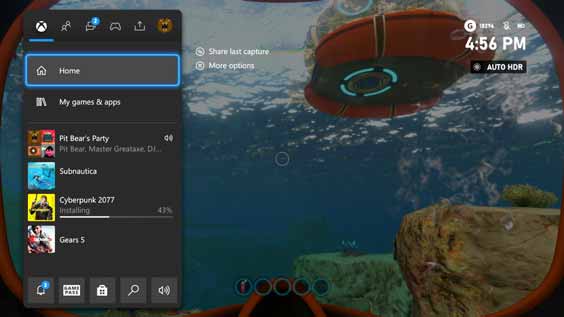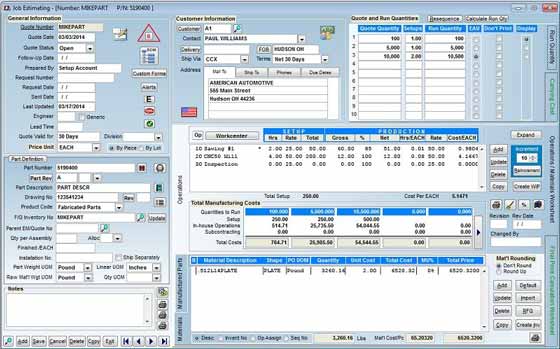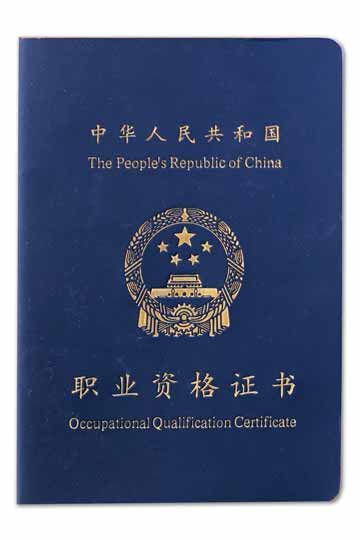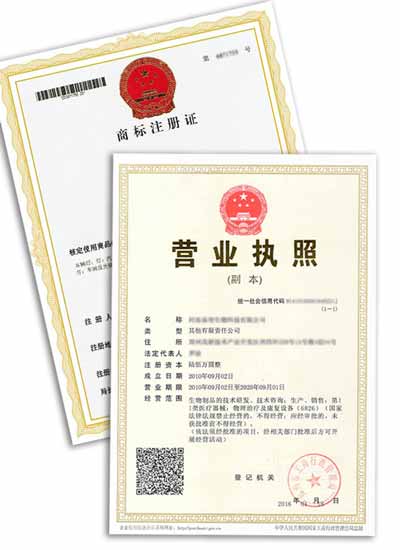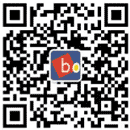翻译案例
翻译语种
联系我们
邮箱:liwei@bowwin.com
手机:+86-18565641179
电话:+86-755-8304 2538
地址:深圳市福田区彩田路彩虹新都彩霞阁23A
英文
英文
译
中文
New-type information system
新型信息系统
译者:佚名
New-type information system
(By Russ Finney)
The business of building systems has changed. A time once existed when computer literacy, technical know-how, and programming skills were all it took to become a successful information systems professional. In many companies, this is still the case. But slowly, yet steadily, a new breed of systems professional is beginning to emerge. Technical skills are no longer enough. Business knowledge, communication ability, and a client centered perspective are becoming more and more important. With computer systems playing an ever increasing role in the management and the competitiveness of companies of all sizes, the information systems professional no longer just serves the company, in many case he or she has a major influence on the way business is conducted.
What does this mean for today's systems professional? It means the burden of keeping up is even more challenging than ever! Systems professionals must increasingly view themselves as business problem solvers and business enablers, not just technicians. Computing power has become a part of corporate strategy, and the system builders are charged with creating the business information systems "vision" and making it a reality. Add to this the vast array of technical platforms, programming languages, databases, and system building methodologies which are available in today's marketplace, and the job becomes somewhat overwhelming! So how should the computing professional approach these challenges?
First, today's system builder must adopt a more business centered philosophy, and second, he or she must exercise discipline and flexibility as the company moves through the system building lifecycle. But which lifecycle? Traditional System Building Approaches, Information Engineering, Object Oriented Design, Rapid Application Development, and a host of others all possess inherent strengths and weaknesses. Which one is best? How should these approach decisions be made?
Unfortunately, no easy answers exist to these questions. Depending on circumstances and experience, one approach may be preferable over another. In other situations, a sampling of techniques and methods from one or more of the current approaches may be appropriate. What follows within this web site is a mix. Some of the strengths from the traditional lifecycle are still present, the foundation of structured analysis is present, many of the advantages of information engineering have been incorporated, and the new paradigms of object-oriented analysis, design and programming are included.
The main criteria for discussion here is one of practicality. What are the approaches which make most sense in today's business climate, and which will yield the greatest productivity results given the ever increasing quality demands of the business clients. The other consideration for inclusion here is that the selected philosophies and approaches are proven and they work. They have been developed from actual IS implementation and support experiences.
(By Russ Finney)
The business of building systems has changed. A time once existed when computer literacy, technical know-how, and programming skills were all it took to become a successful information systems professional. In many companies, this is still the case. But slowly, yet steadily, a new breed of systems professional is beginning to emerge. Technical skills are no longer enough. Business knowledge, communication ability, and a client centered perspective are becoming more and more important. With computer systems playing an ever increasing role in the management and the competitiveness of companies of all sizes, the information systems professional no longer just serves the company, in many case he or she has a major influence on the way business is conducted.
What does this mean for today's systems professional? It means the burden of keeping up is even more challenging than ever! Systems professionals must increasingly view themselves as business problem solvers and business enablers, not just technicians. Computing power has become a part of corporate strategy, and the system builders are charged with creating the business information systems "vision" and making it a reality. Add to this the vast array of technical platforms, programming languages, databases, and system building methodologies which are available in today's marketplace, and the job becomes somewhat overwhelming! So how should the computing professional approach these challenges?
First, today's system builder must adopt a more business centered philosophy, and second, he or she must exercise discipline and flexibility as the company moves through the system building lifecycle. But which lifecycle? Traditional System Building Approaches, Information Engineering, Object Oriented Design, Rapid Application Development, and a host of others all possess inherent strengths and weaknesses. Which one is best? How should these approach decisions be made?
Unfortunately, no easy answers exist to these questions. Depending on circumstances and experience, one approach may be preferable over another. In other situations, a sampling of techniques and methods from one or more of the current approaches may be appropriate. What follows within this web site is a mix. Some of the strengths from the traditional lifecycle are still present, the foundation of structured analysis is present, many of the advantages of information engineering have been incorporated, and the new paradigms of object-oriented analysis, design and programming are included.
The main criteria for discussion here is one of practicality. What are the approaches which make most sense in today's business climate, and which will yield the greatest productivity results given the ever increasing quality demands of the business clients. The other consideration for inclusion here is that the selected philosophies and approaches are proven and they work. They have been developed from actual IS implementation and support experiences.
新型信息系统
(翻译yanrj)
系统建造这一工作(业务)已经变了!曾经一度时间,计算机素养、技术细节、 编程技巧是成为一个成功信息系统专业人士的全部。(事实上,)在很多公司里,目前 仍然是这样。但是,慢慢地,新一代的信息系统专业人员正在稳步开始出现。仅有技术 上的技巧已经不够,业务知识、沟通能力、以客户为中心的观点变得越来越重要。随着 计算机系统在各种(或所有)大大小小的公司中的管理和竞争能力方面起的作用越来越 重要,信息系统专业人员不再仅仅是为公司服务,在很多情况下他或她对业务运作的方 式有着关键的影响。
那么对于今天的系统专业人员来说,这意味着什么呢? 意味着(系统)维护的 担子比以前更具有挑战性!系统专业人员必须进一步把自己当作业务问题的解决者和 业务使能者,而不仅仅是技术人员。现在,计算能力已成为公司策略的一部分,而系 统开发人员则负责创造业务信息系统的“愿景”,并将它变成现实。加上目前大量在 市场上可获得的技术平台、编程语言、数据库和系统开发方法,这项工作一定程度上 说势在必行!那么,计算业人员应如何面对这些挑战?
首先,今天的系统建造人员必须采纳更加以业务为中心的哲学;其次,随公司沿着 系统建造生命周期的推进,他或她必须训练自己的纪律性和灵活性。然而是哪个生命周期? 传统的系统建造方法,信息工程、面向对象设计、快速应用开发,以及其它方法都具有其固 有的优点和缺点。哪个是最好的?应当如何进行这些方法的决策?
不幸的是,对于这些问题不存在简单的回答。在特定的环境和经验下,一种方法可能要 比其它方法好。然而在其它的环境下,从现有方法中提取的一些技术和方法可能更加合适。 这个网站构造就是一个(这种方法的)混合体。传统生命周期的部分优点依旧存在,结构化分 析的基础依旧存在,而很多信息工程的优点已经被结合,包括面向对象分析、设计、编程等 新方法。
这里讨论的主要准则是实用性。在今天的商业气候中最起作用的方法是什么,哪种方法 能面对商业客户不断增长的质量需要而产生最大的收益。这里,另一需要考虑的是被选体系 和方法应当是被证实的,并能工作的。它们是在实际的信息系统实施和支持实践中形成的。
(翻译yanrj)
系统建造这一工作(业务)已经变了!曾经一度时间,计算机素养、技术细节、 编程技巧是成为一个成功信息系统专业人士的全部。(事实上,)在很多公司里,目前 仍然是这样。但是,慢慢地,新一代的信息系统专业人员正在稳步开始出现。仅有技术 上的技巧已经不够,业务知识、沟通能力、以客户为中心的观点变得越来越重要。随着 计算机系统在各种(或所有)大大小小的公司中的管理和竞争能力方面起的作用越来越 重要,信息系统专业人员不再仅仅是为公司服务,在很多情况下他或她对业务运作的方 式有着关键的影响。
那么对于今天的系统专业人员来说,这意味着什么呢? 意味着(系统)维护的 担子比以前更具有挑战性!系统专业人员必须进一步把自己当作业务问题的解决者和 业务使能者,而不仅仅是技术人员。现在,计算能力已成为公司策略的一部分,而系 统开发人员则负责创造业务信息系统的“愿景”,并将它变成现实。加上目前大量在 市场上可获得的技术平台、编程语言、数据库和系统开发方法,这项工作一定程度上 说势在必行!那么,计算业人员应如何面对这些挑战?
首先,今天的系统建造人员必须采纳更加以业务为中心的哲学;其次,随公司沿着 系统建造生命周期的推进,他或她必须训练自己的纪律性和灵活性。然而是哪个生命周期? 传统的系统建造方法,信息工程、面向对象设计、快速应用开发,以及其它方法都具有其固 有的优点和缺点。哪个是最好的?应当如何进行这些方法的决策?
不幸的是,对于这些问题不存在简单的回答。在特定的环境和经验下,一种方法可能要 比其它方法好。然而在其它的环境下,从现有方法中提取的一些技术和方法可能更加合适。 这个网站构造就是一个(这种方法的)混合体。传统生命周期的部分优点依旧存在,结构化分 析的基础依旧存在,而很多信息工程的优点已经被结合,包括面向对象分析、设计、编程等 新方法。
这里讨论的主要准则是实用性。在今天的商业气候中最起作用的方法是什么,哪种方法 能面对商业客户不断增长的质量需要而产生最大的收益。这里,另一需要考虑的是被选体系 和方法应当是被证实的,并能工作的。它们是在实际的信息系统实施和支持实践中形成的。
- 上一篇:平安境外旅行紧急救援医疗保险条款(节选)-Policy Clauses of Ping An Over
- 下一篇:百来福家用电热水器安装使用说明书-ELECTRIC WATER HEATER Installing and Opera
文化与资讯
-
2022-10-26选择北京翻译公司要注意哪些问题?
-
2021-06-22陪同翻译有哪些注意事项?
-
2021-01-20爱丽丝·门罗:不是“蛮译”是“慢译”
-
2021-01-18翻译公司:只是翻译惹的祸
-
2021-01-03常用网上资源
-
2021-01-03英伦印迹:看我这样享受恬淡留学生活
翻译服务

